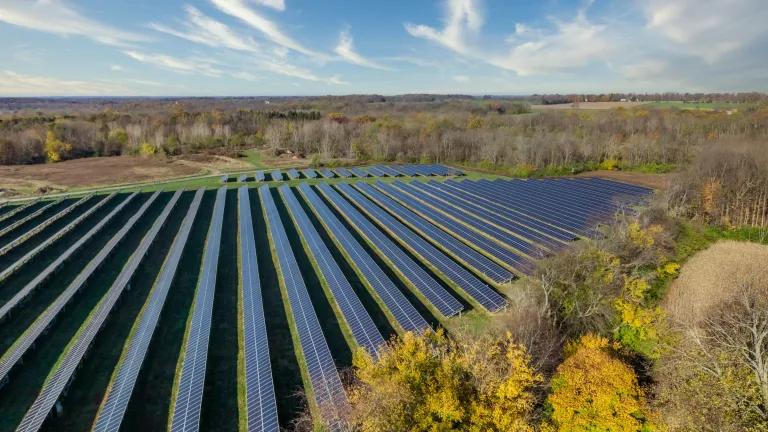Energy bills will be debated and voted on next week. What does that mean for your day to day life? If passed, the bills will impact your kids’ health, your spouse’s job, and the stack of bills on your kitchen counter for years to come. The only question is whether the impact is positive or negative. For a positive outcome, the answer is an increased commitment to renewables and increased energy efficiency.
During the last round of energy bills on the House side were up for vote I shared ways to understand and upgrade that version of the bills. This time around I’ll update you on the issues and emphasize why it matters.
Renewable Energy and Waste Reduction Goal
Why It Matters:
More than ever, Michigan needs to deliver on health and cleaning up its energy resources is a crucial step in following through on that need. Health professionals in the state echo this need calling for energy policy that reduces toxic air pollution and protects the health of Michigan families. The connection between air pollution and health is clear—that’s the thing these policies aren’t only about energy they’re about health.
Upgrade Needed for Michigan:
We need a way to ensure the goal is met. A goal for no less than 35% electricity coming from energy waste reduction and renewable energy by 2025 is in the current Senate Bills 437 and 438, but no accountability exists to reach that goal. It’s easy to raise expectations, when you don’t have to deliver.
Renewable Energy
Why It Matters:
Clean energy businesses and jobs have been a critical part of the growing Michigan economy. The current legislation doesn’t ensure that this growth will continue. Certainty may not seem like a big deal, but when it comes to bringing business into the state and keeping them here it matters. Just look at Ohio. They put a hold on the renewable portfolio standard and have since felt the cold shoulder from businesses. If the freeze remains, a new study shows that the state will lose three billion dollars in savings by 2030. It’s no surprise that Republican Governor John Kasich said that any continued freeze of the renewable energy standard was unreasonable and kicking the can down the road.
Another Midwestern state devoted to ensuring renewables are successful is Iowa. It was the first state that put in place a renewable portfolio standard and proves that sticking with a good thing gets you results. A recent study showed that 82% of Iowa’s renewable energy jobs come from wind power, or more than 6,400 jobs and they’re not stopping there. Just last month, Des Moines’ largest utility, MidAmerican, said it would get 85 percent of its energy from wind. That project would add up to 2,000 megawatts of wind generation—meaning the previous job count will surely be rising dramatically.
Upgrade Needed for Michigan:
Grow the Renewable Portfolio Standard (RPS). The current bills kill the RPS and replace it with a 10% renewable floor that was introduced as part of an energy planning process. Since Michigan already reached 10%, this floor doesn’t provide any confidence that the state will get additional renewables.
Energy Waste Reduction
Why It Matters:
Right here in Michigan is another success story in a different industry. The energy efficiency sector racks up more than 47,000 jobs across the state—that’s more than the state’s fossil fuel sector. Good jobs aren’t the only benefits of energy efficiency. They’ve also been proven to lower energy bills—particularly in low-income and underserved communities. A recent study found that for every $1.00 spent on energy efficiency programs in Michigan, customers will get more than $4.00 back in benefits, including savings on your electric bill. Add these benefits up over the years and you’re looking at savings of over four billion dollars just from programs installed from 2010-2014.
Upgrade Needed for Michigan:
If we want certainty that Michigan continues this streak of success, the standard or some mechanism of real accountability must remain in place. Instead, right now, the bills would eliminate the energy efficiency standards that resulted in such large and widespread benefits by 2020.
Don’t let your legislators pass this bill without making these upgrades. Making these changes will ensure a positive impact on your kids’ health, your spouse’s job, and the stack of bills on your kitchen counter for years to come.




